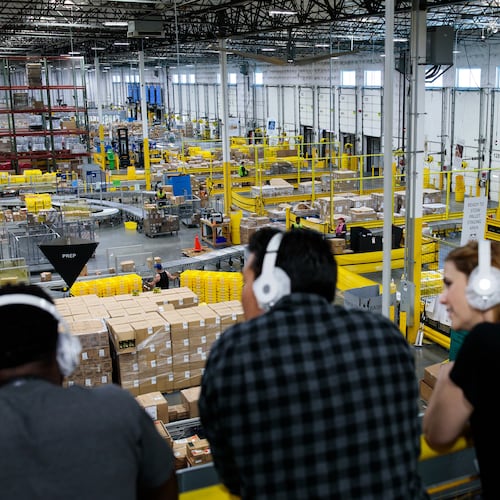A late cold snap appears to have spared Georgia’s blueberries, peaches and citrus after a disastrous season last year.
“We have a full crop,” said Will McGehee, marketing director for Georgia Peach Council. “We’re about as excited about this crop as we’ve ever been.”
Last year was among the worst on record for Georgia peach farmers, who lost more than 90% of their crops after an abnormally warm winter coaxed the trees to bud before a March freeze killed the blossoms that would have become fruit.
McGehee said Monday’s freeze warning had growers “on pins and needles,” but that temperatures stayed above freezing in the peach belt of middle Georgia. Chris Butts, executive director of the Georgia Fruit and Vegetable Growers Association, also said he’d had no reports of damage from members anywhere in the state.
Winters in Georgia have been getting warmer, historical data show, posing challenges to growers of certain crops that rely on consistent seasonal cycles to produce the best fruit. When the winter is warm, the plants lose necessary “chill hours” they need to set fruit and they can blossom too early, making them vulnerable to sudden freezes.
Pam Knox, an agricultural climatologist at UGA, said Georgia could see another frost before May, but for now she’s optimistic about the 2024 season.
“We kind of dodged the bullet,” Knox said.
In the long run, however, farmers will need to adapt to a changing climate in which winters are warming twice as fast as other seasons, Knox said. Some are already diversifying their crops and experimenting with chemical sprays to protect the plants from the elements and control when they bloom.
“It’s a target that’s hard for them to reach because they have to deal with the warming winters but they also have to deal with the fact that there’s still weather,” Knox said. “We’re still going to get these frosts.”
Hector Buitrago, who owns Hemi Blueberry Farm in Greensboro, near Lake Oconee, was among those breathing a sigh of relief this week. He set up heat blowers among the plants as a precaution after losing 90% of his crop in a freeze last year. When he woke up to unscathed bushes, Buitrago sent triumphant photos to friends and family.
“They were celebrating because last year was a disaster,” Buitrago said. “We are really happy.”
Corbett Brothers Farms in Lake Park, in south Georgia near Valdosta, grows citrus and vegetables. Co-owner Justin Corbett said they were not affected by this week’s cold weather.
”If we can get past the full moon here [on March 25], we should be home free,” he said.
A note of disclosure
This coverage is supported by a partnership with Green South Foundation and Journalism Funding Partners. You can learn more and support our climate reporting by donating at ajc.com/donate/climate/
Keep Reading
The Latest
Featured




